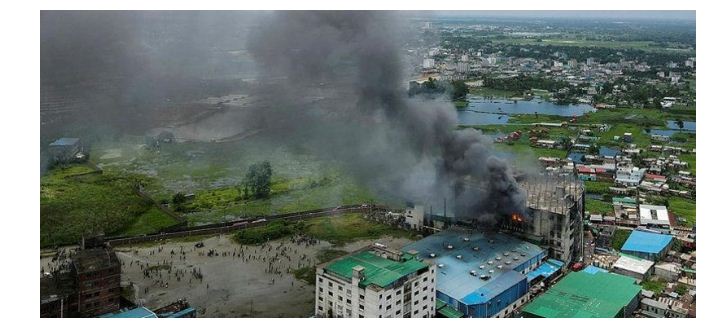DHAKA – More than 50 people have died in a fire that broke out at a food and beverage factory outside the country’s capital, fire officials and local TV stations said Friday.
A fire service official, Russel Shikder, confirmed that the fire began Thursday night at the five-story Hashem Food and Beverage Ltd. factory in Rupganj, just outside Dhaka.
Debasish Bardhan, deputy director of the Fire Service and Civil Defense, said more than 50 bodies have been recovered from inside the factory and rescue operations continue. He said the top two floors of the factory have not yet been searched.
The main exit gate of the factory, which processes juice, soft drinks and other food items, was locked from inside, he said.
Details of the cause of the fire, how many people were inside the factory and how many were missing were not immediately available.
Bangladesh has a history of deadly factory fires. They are often attributed to safety lapses that still plague the South Asian country despite its rapid economic growth.
Continuing corruption and lax enforcement have resulted in many deaths over the years, and big Western brands, which employ tens of thousands of low-paid workers in Bangladesh, have come under heavy pressure to improve factory conditions after fires and other disasters killed hundreds of people.
In February 2019, a blaze ripped through a 400-year-old area cramped with apartments, shops and warehouses in the oldest part of Dhaka and killed at least 67 people. Another fire in Old Dhaka in a house illegally storing chemicals killed at least 123 people in 2010.
Authorities imposed tougher safety rules after more than 1,100 people died when a garment factory complex collapsed near Dhaka in 2013. The country’s garment industry has since become largely compliant under domestic and global watchdogs, but many other local industries fail to maintain safety compliance.
The International Labor Organization said in a 2017 report that Bangladesh‘s regulatory framework and inspections “had not been able to keep pace with the development of the industry.”

















